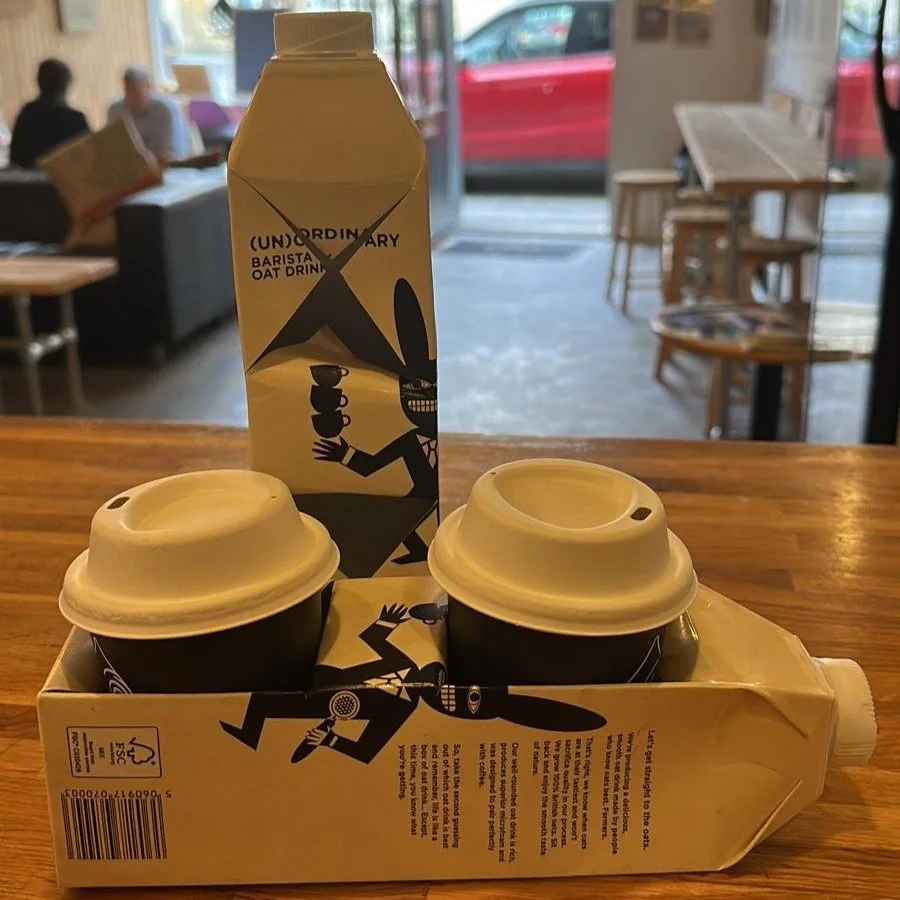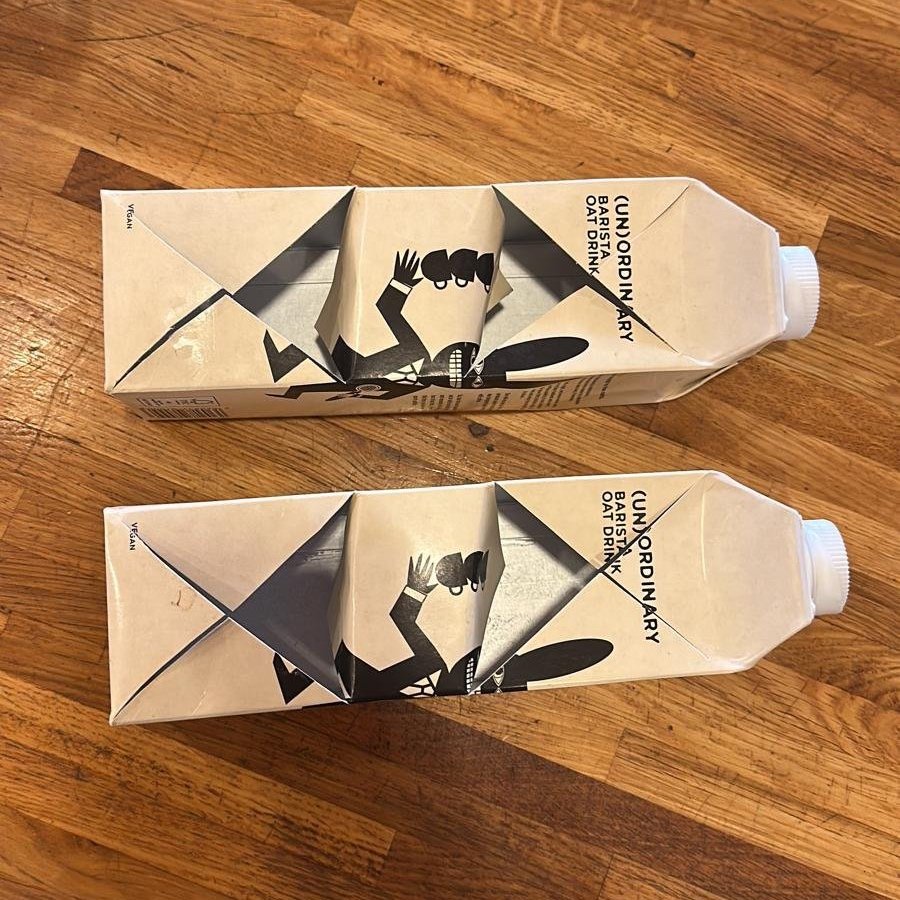Sustainability
/Sustainability…
It’s a term that's often thrown around, but what does it really mean? According to the Cambridge Dictionary, it's about producing goods and services in ways that don't deplete resources or harm the environment. That's a good start, but I think it's more nuanced than that. A deeper definition of what sustainability is reads:
“Sustainability is the ability to maintain or improve systems and processes over the long term without causing harm to environmental, social, and economic dimensions.”
This broader more detailed definition allows us to focus on specific aspects of our operations, including economic and social sustainability, which are often overlooked alongside the more commonly thought environmental impact.
Let's start with Economic sustainability.
The goal for any business, including a coffee shop like Bean Shot, is to purchase raw ingredients at a given price, add value, and then sell them at a higher price. It sounds so simple, but it's really not. Prices fluctuate daily and are often way beyond a business's control in how they fluctuate. It's my responsibility as the owner to keep an eye on these changes, across every aspect of the business, from how much raw coffee costs, wages, inflation and fuel costs to name a few of the more obvious ones. I'll delve deeper into the journey of an individual coffee bean from ‘crop-to-cup’ in a future post, but for now, let's just say that economic sustainability is what keeps our doors open and Bloody Good Coffee flowing!
Now, moving on to briefly cover Social sustainability, which is actually really interesting and very close to Bean Shot's core values. It encompasses social equity, community development, and human rights.
Social equity is the fair distribution of resources, opportunities, and benefits within a society.
Community development involves empowering individuals and groups to improve their own circumstances, contributing to a more sustainable society.
Human rights are the moral and legal guidelines that promote and protect the dignity, freedom, and equality of all human beings.
At Bean Shot I always quote:
‘We're not a coffee business; we're a people business’
We pay our staff well, offer security, and treat them with respect. This creates a virtuous cycle where staff treat customers well, who in turn, return and continue to support the business, and so the social sustainability cycle continues. Check out our blog post on inclusivity and diversity for a more in depth post on one aspect of this. What’s written above is a very simplistic version of social sustainability but know that the empowering we give our staff and the inclusiveness we promote all builds together to improve our social sustainability across the board.
Now, moving on to Environmental, which is arguably the most commonly thought about subject when discussing sustainability.
When it comes to environmental sustainability, we're passionate and committed to making a tangible impact.
First of all, we're avid recyclers. Everything from paper to plastic gets sorted and taken to recycling centres. But what about the odd things that build up quickly and no one thinks twice about, like our used and spent coffee grounds for example? Well, they're actually a goldmine of nutrients and bio matter for horticulturalists that hold nitrogen, carbon, potassium, and phosphorus within its structure, as well as having a woody cellular structure. Our friends Sarah and John Whittick, who run a tree-planting business, come in weekly, take the old coffee grinds and use them as natural fertilisers for new trees and to improve the soil structure. It's a real plant growing full-circle moment that I absolutely adore.
We've made some clever tweaks to our daily operations. Our milk comes in churns from Bruton Dairy, saving us from using thousands of plastic bottles annually. To put it in numbers, each churn is 10 litres, which equates to five 2-litre plastic bottles. We use about 12 churns each week, which means we're saving 60 plastic bottles per week. Over a month, that's 260 bottles, and over a year, that's more than 3,000 single use plastic bottles we're not having to use! A simple change, but a massive impact.
Our cup carriers are ingeniously crafted from empty alternative milk cartons. Once rinsed out, we cut two crosses into one side and fold the flaps down to create cup holes. Not only is this re-using an item that would otherwise be single use, but customers can also bring them back time and time again, so they get multiple uses. You can read an interview G did with MTPak on the cup carriers here...
Here’s a mind blowing moment for you... Single use sugar sachets in coffee shops contain a plastic lining, which is shocking when you think about it considering the amount of sugar sachets you see everywhere. The coating was designed to prevent moisture getting to the sugar and spoiling it. Sachets today are single use and then thrown away with no consideration to their environmental impact. At Bean Shot we've eliminated this by creating and using a sugar syrup, made from sugar sold in bulk in paper bags. This not only prevents plastic waste but also has benefits like easier mixing into drinks, reduced spillage and is way more hygienic than the open to the elements (and fingers) sugar cubes.
Our takeaway cups and lids are fully compostable. The cups come from Brandyour.co, who use Paper2Paper as their base producer. (read their cup report here). They use a water based liner to keep liquids in the cup rather than the industry standard plastic coating. Even the cup sleeves (the cups come in sleeves of 25 cups and are wrapped in a sleeve during transport) are paper wrapped, again preventing more single use wasted plastic. The lids are made from bagasse, a byproduct from the sugar cane industry, and are 100% compostable within a 30-90 day period, leaving behind only plant-based residue. We’ve even had a customers plant seedlings into used takeaway cups which were then planted directly into the ground. Genius!
Our coffee bags we have made are biodegradable, thanks to our partnership with MTPak. They conform with EN13432 compostability standards (feel free to read more on that here... I'll wait!), ensuring they're compostable. The tin tie on the bags obviously arent, but can be easily torn off and recycled in metal recycling.
I stated in my last post about the online delivery changes, we've made a conscious choice to use dual-walled paper mail bags. These aren't just strong; they're also easily recyclable in your home recycling. Or you can reuse them for your own shipping needs. We've even switched to eco-friendly paper tape as well, both bags and tape from Kite Packaging. The tape uses a simple, environmentally friendly solvent to ensure it adheres well. It's a small change, but one we're particularly proud of, especially to see the amount of plastic saved with all the online shipments we do.
Our commercial energy choices also reflect our commitment to sustainability. We've opted for a tariff that relies on 100% renewable energy. It's a straightforward decision, but one that aligns perfectly with our ethos.
On the energy front, the heating of the Sherborne shop is another area where we've made a sustainable choice. The shop is equipped with an infra-red heater. Unlike traditional heaters that warm the air, this one heats objects directly, so, even if the door swings open in the dead of winter, we won't lose all the accumulated heat.
Last but not least, I want to mention our fridges and freezers. We have been using a temperature monitoring system from a company called Navitas. We place temperature recording pods in each appliance that digitally records the temperature of each appliance every 20 minutes. This ensures 1. we're within safe and legal limits for fridge and freezer temperatures (fridges at 5 degrees Celsius and freezers at -18 degrees Celsius). And 2. it also allows us to fine-tune the settings of each appliance so we're not wasting energy. According to a Navitas study, most fridges and freezers in the hospitality sector operate 2.2 degrees Celsius cooler than necessary, leading to an unnecessary energy expenditure of 22% per appliance. When implementing this system and checking ours, their estimation was correct, with our freezer operating at –23 degrees Centigrade, which we have subsequently changed with the help of the pods, saving us energy.
So there you have it. From our delivery methods to our energy choices, and even down to the temperature of our fridges and freezers, every detail is considered in our quest for sustainability. Not to mention the social and economic sustainability we are challenging and improving every single day.
We're here to make a tangible difference in the world, even if it’s a small world in the corner of Bruton and Sherborne. But if you've read this far, you're a part of that journey too.
Cheers!








